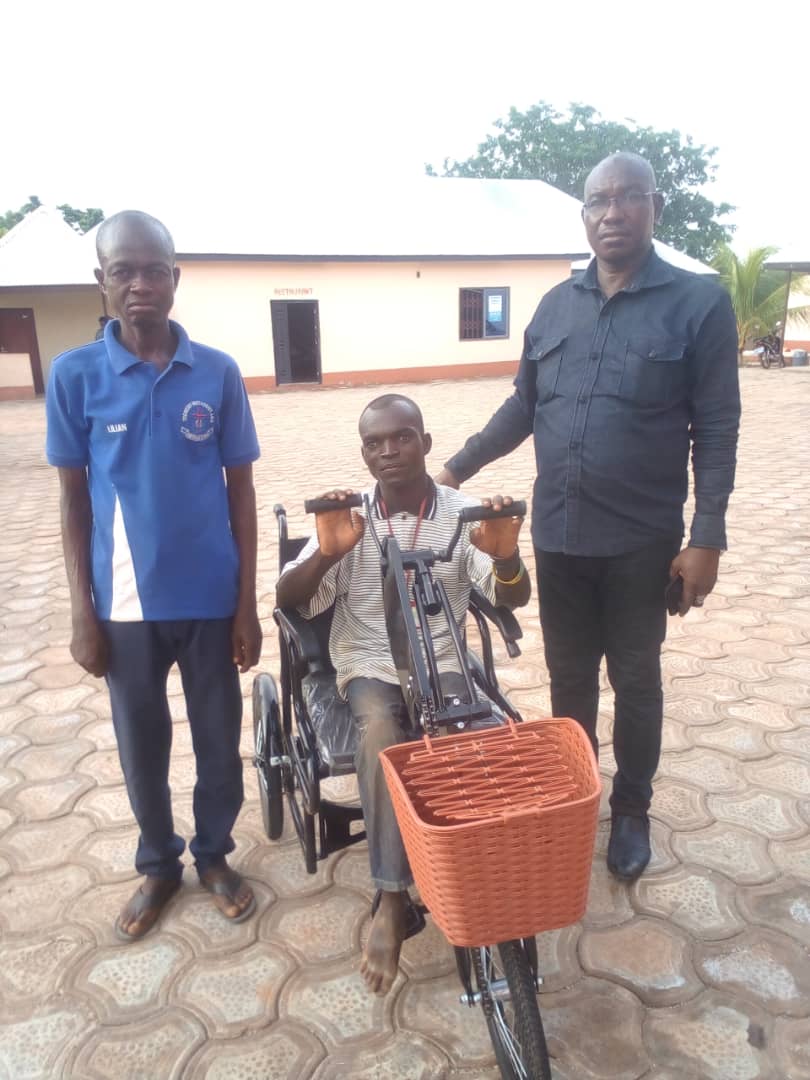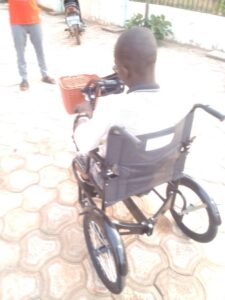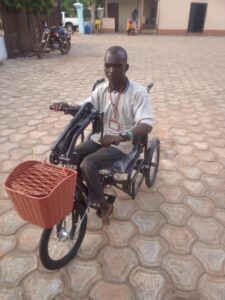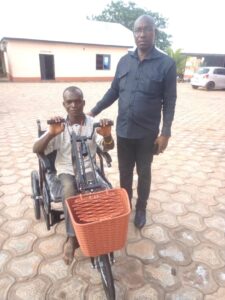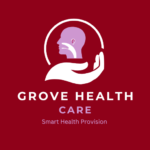Prioritizing Support for People with Disabilities
In today’s society, we often find ourselves caught up in unhealthy competitions, whether it’s for academic degrees, personal possessions, or social status. While striving for excellence can be beneficial, it’s essential to recognize that these pursuits can sometimes overshadow more pressing needs, such as supporting people with disabilities.
The Need for Greater Support
People with disabilities often face significant challenges in their daily lives, from navigating inaccessible public spaces to overcoming societal barriers. By prioritizing support for people with disabilities, we can help create a more inclusive and equitable society.
Benefits of Prioritizing Support
-
1. Increased accessibility:
By providing greater support, we can create more accessible environments that benefit everyone.
-
2. Improved quality of life:
Support for people with disabilities can significantly improve their quality of life, enabling them to participate fully in society.
-
3. Promoting inclusivity:
Prioritizing support for people with disabilities helps promote inclusivity and challenges societal stigmas.
Shifting Focus
Rather than focusing solely on personal achievements, we should strive to create a society that values and supports all individuals, regardless of their abilities. By doing so, we can build a more compassionate and equitable world.
Call to Action
Let's work together to prioritize support for people with disabilities and create a more inclusive society. We can start by:
-
1. Raising awareness:
Educating ourselves and others about the needs and experiences of people with disabilities.
-
2. Advocating for accessibility:
Pushing for greater accessibility in our communities and workplaces.
-
3. Providing support:
Offering support and resources to people with disabilities, whether through volunteering, donating, or simply being an ally.
By prioritizing support for people with disabilities, we can create a more just and compassionate society that values the contributions of all individuals.
PHILANTHROPIC GESTURE
The story so far:
I arrived in Nandom on 03/04/25 at 4 pm, exhausted and heavy-hearted, from the long 24-hour journey via STC passenger bus from Accra, the Capital City of Ghana.
The purpose of my journey was to attend the final funeral rites of my beloved and only surviving auntie at KO-Guo, a suburb of Nandom municipality. Tired, as I was, I still had to wake up early from Brutu, my home village, to get to the funeral ground before the traditional mourning started.
I was first directed to Rear Admiral Bessing’s residence, where I waited for a while and moved to the second family house to exchange pleasantries with known faces and strike new acquaintances. On arrival at the second family house, I was ushered onto a bench and sat by a young man on the same bench. I turned and greeted him after I sat by him. After a while of sitting, I noticed something obvious about the young man seated to my right-hand side. How he got down from the bench and how he moved was, to say the least very creative; manoeuvres he would master over ages, that was my thought.
The courage to get out there into the crowd and be counted, show care and pay last respect to a loved one who had passed on endeared him to my heart. He literally crawled on the floor on his knees and elbows. His elbows were protected by a pair of thick rubber sandals to minimise bruising from the rough floor/ground. A scan of the faces around, in my first encounter with him, didn’t show any surprise look, though the occasion was a funeral. However, seeing him in that state surprised me to my core. Even in that pitiful state by all standards, he possessed a caring heart as a creation of God.
We had to move to the original family house, about 200 meters away, to start the opening funeral ceremony, as tradition demands. When the family head signalled the start of the funeral by screaming and calling out the ‘fathers’… Sa woiii…sa woiii… This was joined in chorus by the other family members and all who had come to pay their last respects. That marked the beginning of a 48-hour-long ceremony involving traditional drumming and dancing, culminating in a thanks-giving service on the final day.
At the opening funeral ceremony, I noticed the young man wasn’t left out of the proceedings. When a bowel was displayed in the middle of the mourners to receive collections from the mourners on behalf of the xylophonist, drummers, dirge singers etc, this amazing young man was not left out in the understanding and following the traditional gestures dictated at funerals. He would crawl and weave through the massive crowd gathered around the xylophone to do the needful, without fear of someone accidentally trampling on him or tripping and falling on him. The carrier of the container within the gathering had to politely bend down to a level low enough for him to drop his contribution like everyone else. I had no clue up to this point how he was managing his movement because he had no driver assigned to him nor did he have a wheelchair for his mobility.
When the opening ceremony was over, the corpse had to be moved to the final funeral grounds, about 300 meters from the original family house and 100 meters from the second family house. The site of him engaged my mind and thoughts raced through my memory network in rapid succession. From my random assessment of him, without speaking to him, I placed his age in his early 20s. It must have been a kind of tough social experience. I had no idea how long he had to deal with his current predicaments. Everyone has a story. He is not different. You can only get to know people’s stories by engaging them.
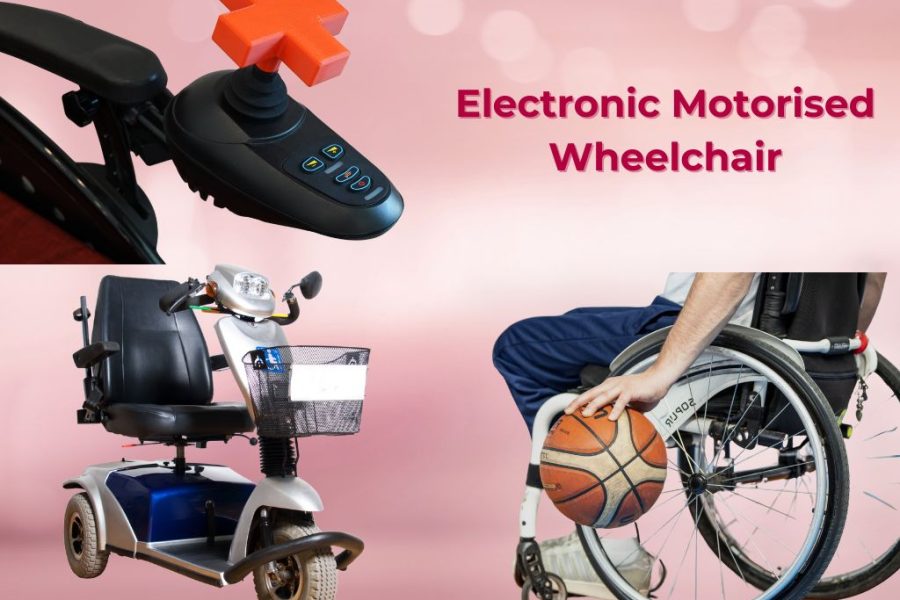
One of the images that jostled for space in my mind was what I saw in London whilst walking along the Street from Parliament Square towards Charring Cross. Whilst taking a leisurely walk, I heard a creaking noise behind me, and the sight I beheld left me stupefied at Medical and Engineering advancements. The sound arriving behind me was a diminutive human figure nestled inside a technologically advanced electronic customised motorised wheelchair and self-propelling herself along the pedestrian walkway. From the look of her, she was paralysed with contractures involving both arms and legs, as could be seen from her hands and feet that showed contractures. No one was in her company. Possibly she was being monitored from afar by CCTVs.
What I noticed again was that this minute vehicle was controlled using her tongue movement, eye glances and head movements. Not clear if she had implantable chips in any part of her body but I noticed when she had to navigate an elevation on the pavement on her path, she stuck her tongue out and the front wheel of the tricycle took a turn to the direction she protruded her tongue. Nodding her head somehow slowed down the tricycle but lifting the head with some kind of eye movements propelled the tricycle forwards etc.
So when I encountered this young man, my thought was that his situation wasn’t the worst I have encountered but I could tell he had not gotten the best solution to his situation. More so at this time the Social welfare department receives budgetary allocation on annual basis. At the thought of social welfare, I made up my mind I would poke my nose in the affairs of this man uninvited. So I needed to talk to someone about him.
When I saw him again at the grounds of the final funeral rites, I wondered how he was managing the movements. Was there someone somewhere who picked up and dropped him off in managing his movements?
Bothered by his predicaments, I approached an ‘old boy’ of NASSOBA fame and hinted to him about my intention to have a chat with this young man with a disability that is not the worst I have encountered so I could be a solution or part of a solution.
On a hot Friday afternoon around 2 pm, we sat under an airy Nim-tree and got hold of his brother to bring him along. He finally crawled to me in the company of an old boy of NASSOBA and a native of the community. I introduced myself and enquired to know about his situation. He didn’t hold back any piece of information deep down his heart. Some he narrated with deep hurt but had been strengthened by the challenges and too strong to shed a tear. In the end, I got to know that he was born with paraparesis where both legs are wak up to the waist. Also revealing was that both biological parents were late.
He was formally in Bolgatanga with his auntie and registered with the Social Welfare Department in Upper East Region. However, upon relocating to Upper West Region, his benefits were stopped. The reason is that he has to register with Upper West Region afresh to enable him receive his benefits. You’ve heard right. Upper East Region couldn’t have transferred his details to Upper West Region, in this day and age??
So who was going to fight for him? I took it upon myself as a personal project for me to buy him a wheelchair that would help with his mobility and some level of independence, in a hustling and bustling modern world, where everyone has new battles to fight. However, I encouraged him to get help in regularising his re-registration with the Department of Social Welfare under the Upper West Region.
True to my promise to him I delivered a brand new tricycle with hand paddles to him at a mini-private ceremony in the presence of his brother. He was immensely grateful and I was immensely satisfied that I was able to deliver this from the bottom of my heart, not because my cup is full and overflowing but as an individual social responsibility.
The following images show the handing over of the tricycle to Mr Marcel Bogne at the Gabidore Guest House at Nandom on 02/06/25.
It is by listening to the quiet voice of God that we know where he is directing us. To God be the glory for his mercies.
Share Post On:
Recent Posts
-
Nuggets of ORL-OTOLOGY
-
Nuggets of ORL-RHINOLOGY
-
Nuggets of Otorhinolaryngology-Basic sciences
-
Anatomy of the Muscles of the Soft Palate
-
Ethmoidal Arteries Ligation for Epistaxis
-
Submucous Cleft Palate (SMCP)
-
Approach to Ligation of the External Carotid Artery
-
Approach to Managing a 3-Year-Old Boy with a Foreign Body in the nasal cavity.
-
Approach to Managing a 3-Year-Old Boy with a Foreign Body impacted in the ear canal.
-
Endoscopic Sphenopalatine Artery Ligation (ESPAL) for Epistaxis
-
Surgical Management of Epistaxis
-
Technique of Incision and Drainage of Septal Hematoma/Septal Abscess
-
Upper Aerodigestive Tract Foreign Body Impaction
-
Incision and Drainage of Hematoma Auris
-
Rigid Bronchoscopy for Retrieval of Foreign Bodies in Children
-
Foreign Body Impaction in the Larynx, Trachea, and Bronchi
-
Leadership Position is a Tool, not a Trophy
-
Carcinoma of the Oropharynx
-
Peritonsillar Abscess
-
Ethics of Doctor-Patient Relationship
-
Doctor-Patient Relationship Case Scenarios
-
Asymmetrical Tonsils and Approach to Evaluation and Management
-
Nasal Polyposis
-
Rigid Oesophagoscopy and Complication
-
Anatomy of Oesophagus
-
Stridor, Snoring, Stertor And Wheezing: How They Compare
-
Temporomandibular Joint (TMJ)
-
Otoacoustic Emissions
-
Tympanometry
-
Functional Endoscopic Sinus Surgery (FESS)
Categories
Get in Touch
Read doctor-produced health and medical information written for you to make informed decisions about your health concerns.

